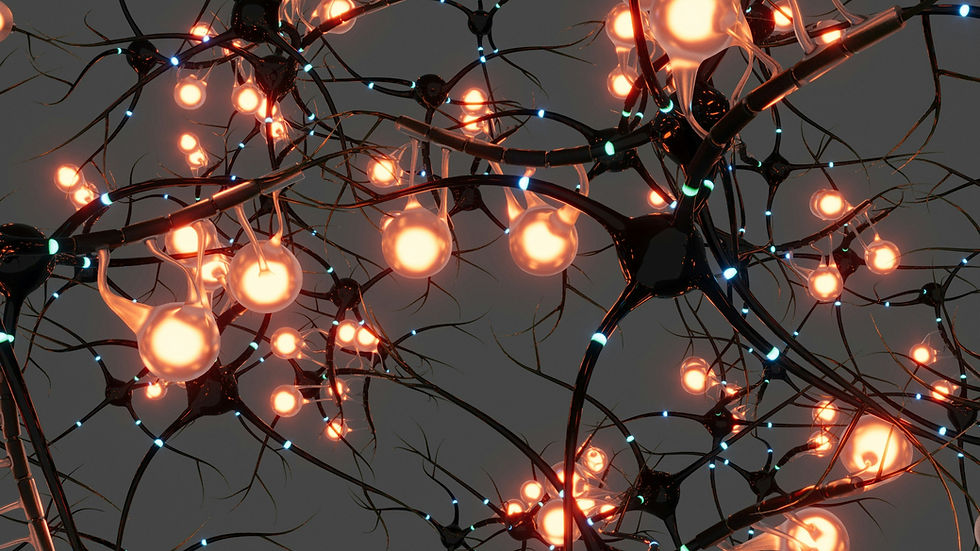Over 50% of Women May Experience Menopause Symptoms in Their 30s, New Study Reveals
- The Female Body

- Mar 13, 2025
- 3 min read

Menopause is often seen as something that happens later in life, with most women expecting to experience symptoms in their late 40s or 50s. However, new research challenges this assumption, revealing that more than half of women in their early to mid-30s may already be experiencing perimenopause symptoms—some of which can be severe.
Despite this, many women wait years before seeking medical advice, leaving them struggling in silence. With this study shedding light on a widespread but under-recognised issue, experts are urging women to understand the signs and seek support sooner.
What Did the Study Find?
Published in NJP Women’s Health, the study analysed data from over 4,400 women aged 30 and above via the Flo health app, which tracks ovulation and menstrual cycles.
The findings revealed that:
55.4% of women aged 30-35 reported moderate to severe menopause-related symptoms.
This figure jumped to 64.3% in the 36-40 age group.
Mental health symptoms such as anxiety, depression, and irritability were among the earliest signs of perimenopause.
More physical symptoms—such as hot flushes, night sweats, bladder issues, and vaginal discomfort—peaked between ages 51 and 55.
Many women waited until 56 or older to discuss menopause symptoms with a doctor, missing years of potential treatment and support.
The study concluded that a significant number of women aged 30-45 are already experiencing perimenopause-related symptoms, even if they don’t realise it.
What Is Perimenopause?
Perimenopause refers to the transition period leading up to menopause, when hormone levels fluctuate before periods eventually stop. It typically begins in a woman’s 40s, but can start earlier.
During this phase, oestrogen levels become inconsistent, leading to symptoms that can affect both physical and mental health.
Common Perimenopause Symptoms
The study used the Menopause Rating Scale (MRS) to assess symptoms, which included:
Hot flushes and night sweats
Sleep disturbances
Heart palpitations
Depression and anxiety
Irritability and mood swings
Physical and mental exhaustion
Joint and muscle pain
Sexual and bladder problems
Vaginal dryness
Dr. Lauren Streicher, clinical professor of obstetrics and gynaecology at Northwestern University Feinberg School of Medicine, warns that these symptoms can be “very real and very disruptive in daily life.”
Is It Normal to Experience Perimenopause Symptoms in Your 30s?
While perimenopause in your 30s is possible, it is not considered the norm. However, hormonal fluctuations can begin in the mid-30s and may last five to ten years before menopause occurs.
Dr. Jessica Shepherd, author of Generation M: Living Well in Perimenopause and Menopause, explains that individual experiences vary, and some women may notice early changes in their cycles or mood long before menopause officially begins.
How Do You Know If You're in Perimenopause?
Because perimenopause symptoms overlap with other conditions, such as thyroid disorders, stress, or nutrient deficiencies, it can be difficult to diagnose.
Dr. Streicher cautions that symptoms alone are not enough to confirm perimenopause. Irregular periods, particularly suddenly skipping cycles, may be a strong indicator. However, if you experience persistent symptoms, she advises seeing a doctor for further evaluation.
What Can You Do About Perimenopause Symptoms?
The best approach depends on your symptoms and personal health goals. Experts recommend:
Consulting a doctor – If symptoms affect your daily life, discuss treatment options, including hormonal and non-hormonal therapies.
Managing fertility concerns – If you plan to have children later in life, talk to a fertility specialist about egg freezing.
Considering hormonal treatments – Some women benefit from low-dose hormonal birth control or menopausal hormone therapy (MHT/HRT).
Lifestyle changes – A balanced diet, regular exercise, and stress management can help stabilise symptoms.
Alternative therapies – Some women find relief through supplements, acupuncture, or herbal remedies—but always check with a medical professional first.
Breaking the Silence Around Early Menopause
The study highlights a major gap in awareness and healthcare access, with many women suffering for years before getting help. By recognising the symptoms earlier and seeking medical support, women can take control of their reproductive and overall health.
With over half of women in their 30s experiencing menopause-like symptoms, it’s time to change the conversation—because menopause isn’t just for older women anymore.




Comments